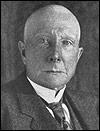Hair loss can disturb the male psyche, but it's even more upsetting for women. No wonder Angela M. Christiano put her education to use when she was diagnosed with alopecia areta, a hair loss condition affecting more than 2 million people nationwide.
While the effort may not have resolved why she loses hair, Christiano, a geneticist at Columbia University, has now identified the first gene associated with human hair loss. She and her U.S. colleagues teamed up with scientists in Pakistan to study a family whose members frequently have alopecia universalis, a rare condition that results in no scalp or body hair growth after birth.
While closing in on the location of the responsible gene, the investigators began to wonder whether it might be the human version of a mouse gene that, when mutated, results in hairless rodents. Using the DNA sequence of the mouse gene, they found the human version in the chromosomal region they had targeted. In the Jan. 30 Science, the researchers reveal that the gene harbors a mutation in family members afflicted with alopecia universalis.
The gene encodes a transcription factor, a protein that regulates the activity of other genes. Christiano and her colleagues hope that their discovery will lead to the identification of more genes involved in human hair growth. Ultimately, such research may suggest new treatments to stem or reverse hair loss.
COPYRIGHT 1998 Science Service, Inc.
COPYRIGHT 2000 Gale Group



